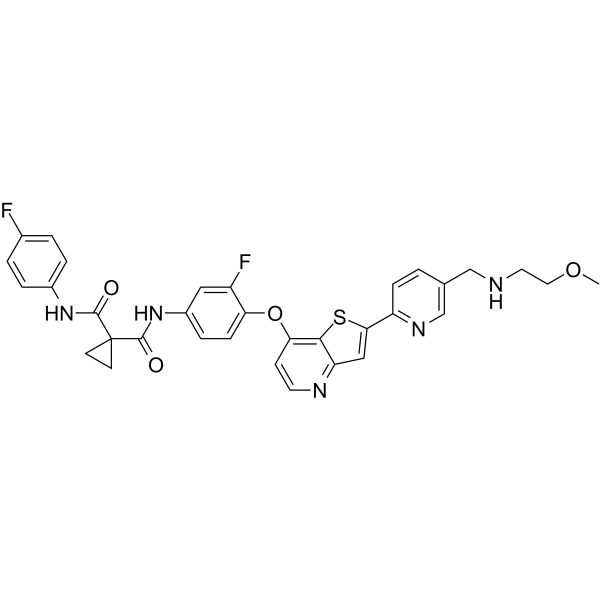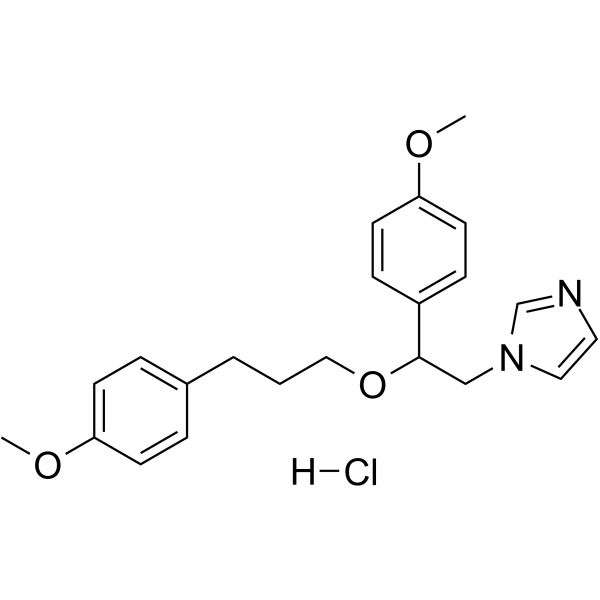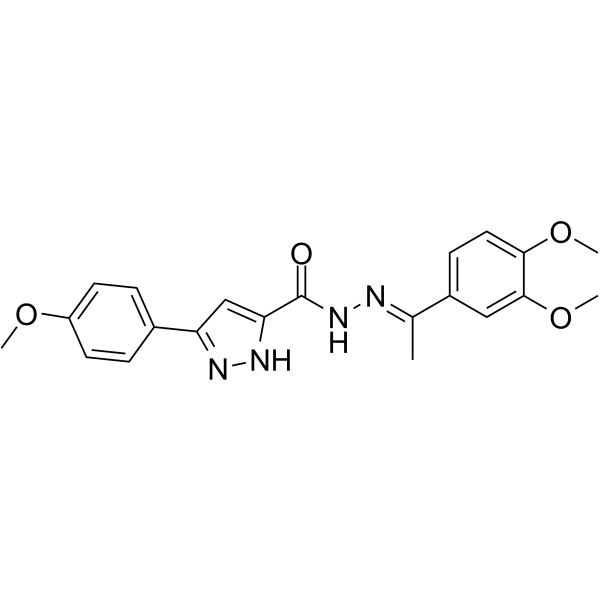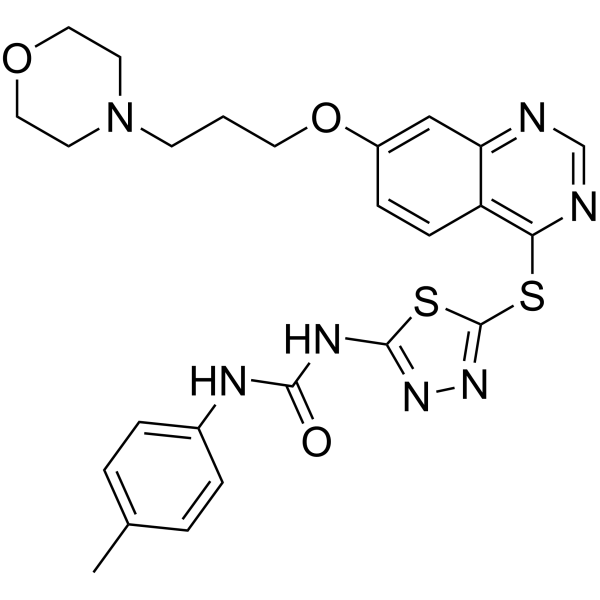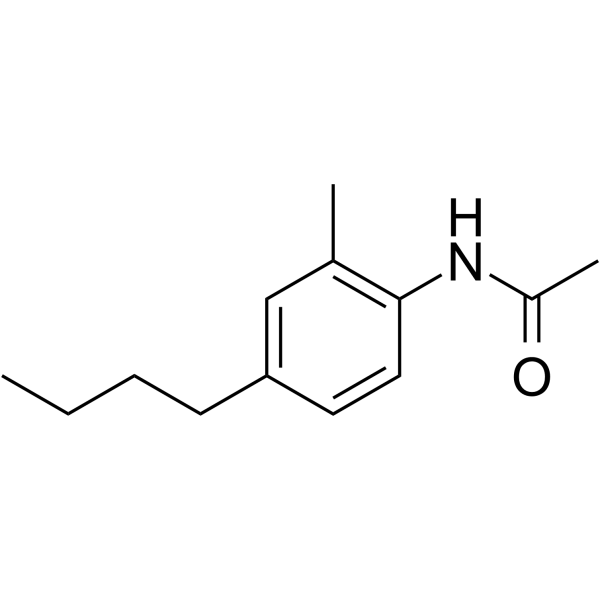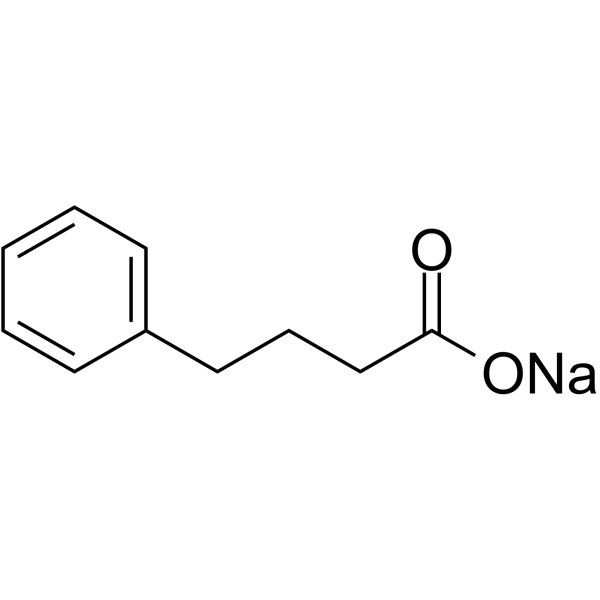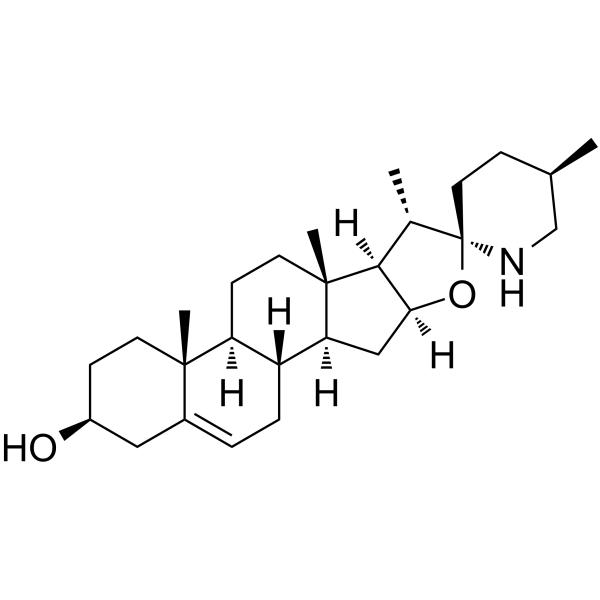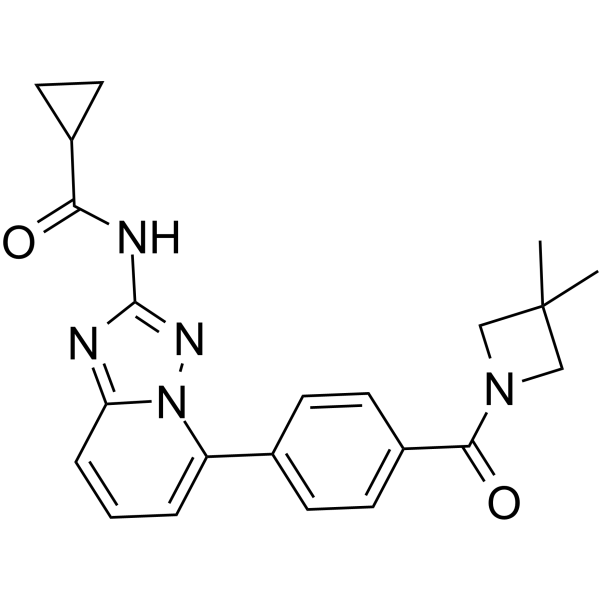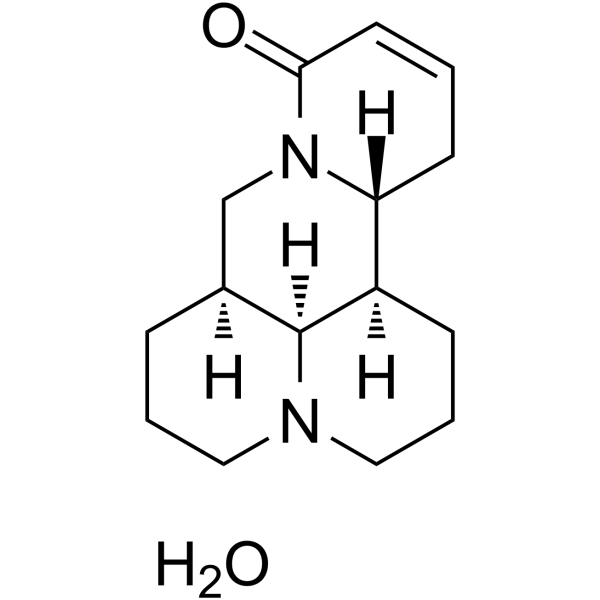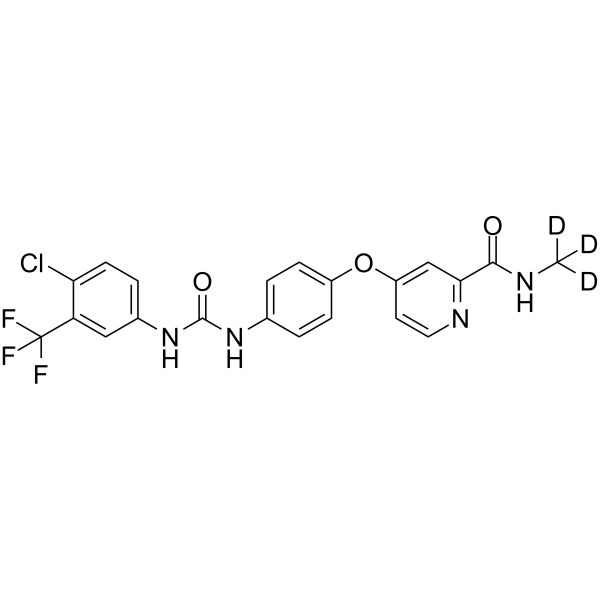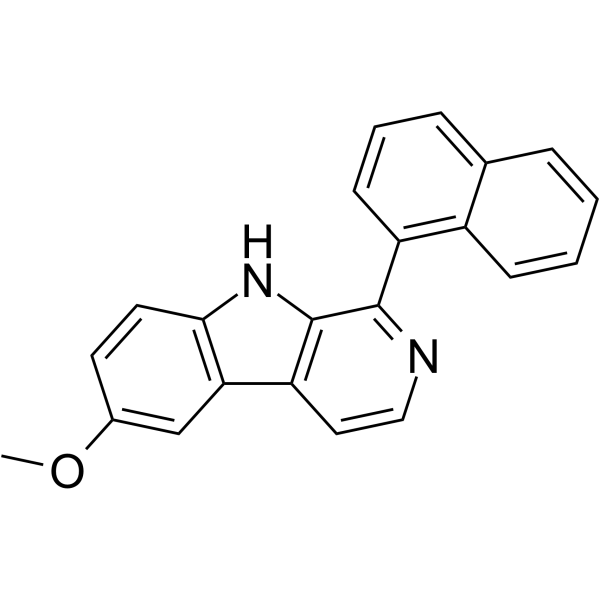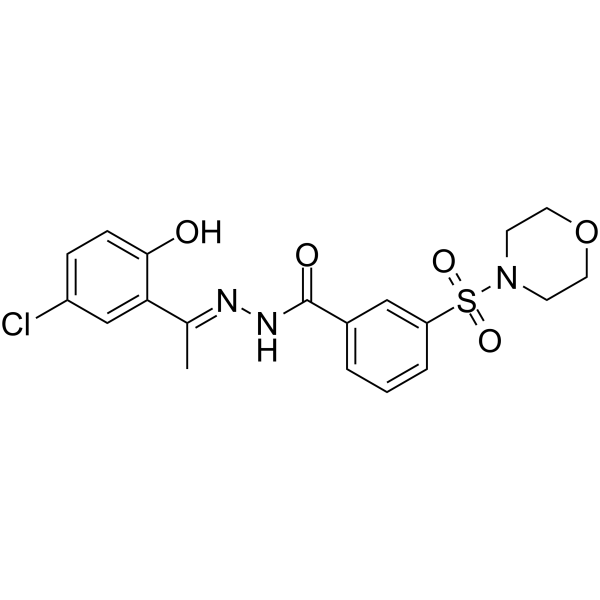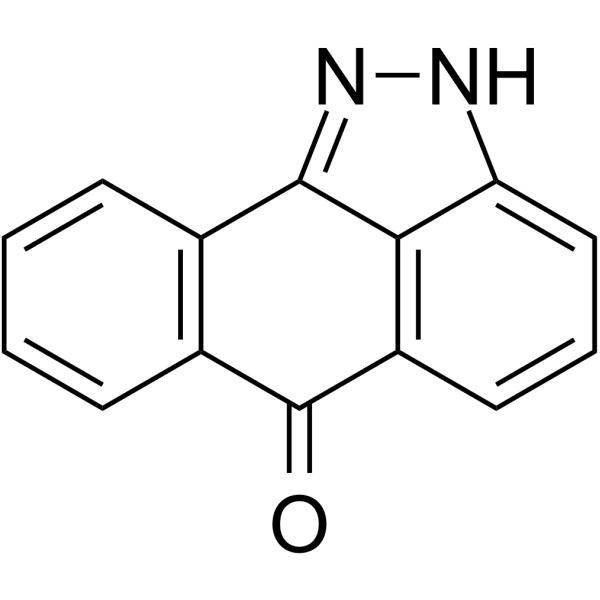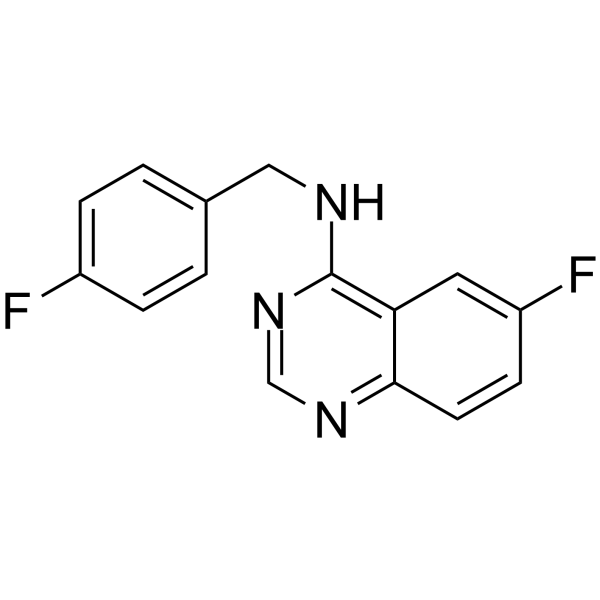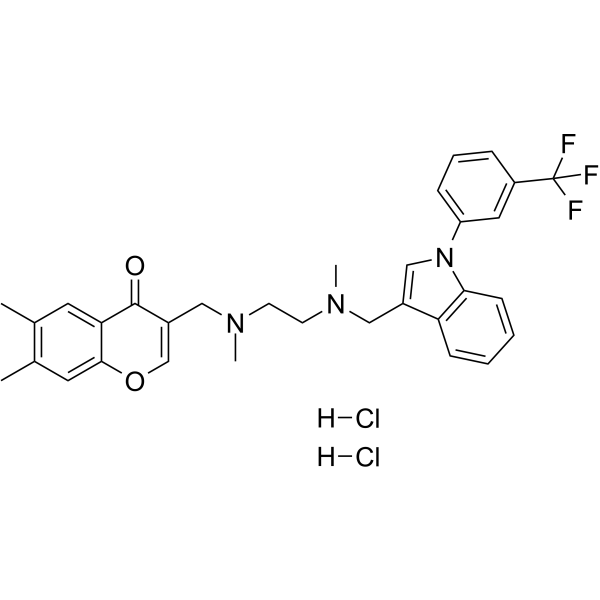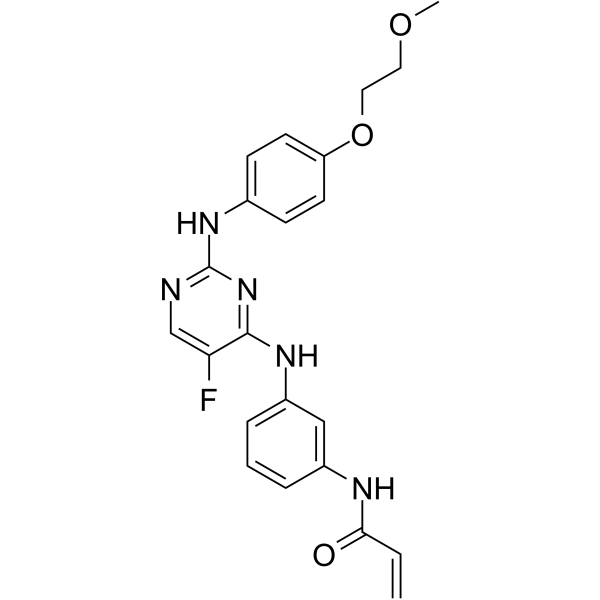|
BP10145
|
Sitravatinib
|
|
|
|
|
Sitravatinib (MGCD516) is an inhibitor targeting multiple RTKs involved in driving sarcoma cell growth, including c-Met, c-Kit, PDGFRα/β, PDGFR, and Axl.
|
|
BP10352
|
SKF-96365 hydrochloride
|
|
|
|
|
SKF-96365, a SOCE inhibitor, exhibits potent anti-neoplastic activity by inducing cell-cycle arrest and apoptosis in colorectal Y cells. SKF-96365 can induce cytoprotective autophagy to delay apoptosis by preventing the release of cytochrome c (cyt c) from the mitochondria into the cytoplasm. Mechanistically, SKF-96365 treatment inhibited the calcium/calmodulin-dependent protein kinase IIγ (CaMKIIγ)/AKT signaling cascade in vitro and in vivo. Overexpression of CaMKIIγ or AKT abolished the effects of SKF-96365 on Y cells, suggesting a critical role of the CaMKIIγ/AKT signaling pathway in SFK-96365-induced biological effects. SKF-96365 inhibited hERG current in a concentration-dependent manner.
|
|
BP10313
|
SKI-178
|
|
|
|
|
SKI-178 is a sphingosine kinase 1 (SphK1) inhibitor with IC50 of 0.1-1.8 μM. It induces prolonged mitosis followed by apoptotic cell death through the intrinsic apoptotic cascade. The sustained activation of CDK1 during prolonged mitosis, mediated by SKI-178 leads to the simultaneous phosphorylation of the prosurvival Bcl-2 family members, Bcl-2 and Bcl-xl, as well as the phosphorylation and subsequent degradation of Mcl-1.
|
|
BP10154
|
SKLB 610
|
|
|
|
|
SKLB610, a novel multi-targeted inhibitor, inhibits angiogenesis-related tyrosine kinase VEGFR2, FGFR2, and PDGFR at a rate of 97%, 65%, and 55%, respectively, at the concentration of 10 μM in biochemical kinase assays.
|
|
BP10256
|
SKLB1002
|
|
|
|
|
SKLB1002 is a potent and ATP-competitive VEGFR2 inhibitor with IC50 of 32 nM.
|
|
BP10297
|
SKLB-163
|
|
|
|
|
SKLB-163 acts by downregulating RhoGDI, activating JNK-1 signaling pathway and caspase-3, and reducing phosphorylated Akt and p44/42 MAPK.
|
|
BP10431
|
SKLB4771
|
|
|
|
|
FLT3-IN-1 is a novel potent and selective Flt3 inhibitor.
|
|
BP10532
|
SMIP004
|
|
|
|
|
SMIP004 is an SKP2 E3 ligase inhibitor. SMIP004 is a cancer cell-selective apoptosis inducer of human prostate cancer cells.
|
|
BP10756
|
Sodium 4-phenylbutyrate
|
|
|
|
|
Sodium Phenylbutyrate, a transcriptional regulator, reversibly inhibits class I and II histone deacetylases (HDACs )resulting in a global increase in gene expression, decreased cellular proliferation, increased cell differentiation, and the induction of apoptosis in susceptible tumor cell populations.
|
|
BP10981
|
Sodium Aescinate
|
|
|
|
|
Sodium Aescinate is extracted from Aesculus wilsonii.
|
|
BP10318
|
Purapuridine
|
|
|
|
|
Purapuridine (Solasodine) is a poisonous alkaloid chemical compound that occurs in plants of the Solanaceae family. Solasodine showed selective cytotoxicity against cervical cancer cell line (HeLa) and human myeloid leukemia cell line (U937).
|
|
BP10231
|
Solcitinib
|
|
|
|
|
Solcitinib (GSK2586184, GLPG0778) is a JAK1 inhibitor. Solcitinib may be potentially used for the treatment of psoriasis, ulcerative colitis, and systemic lupus erythematosus.
|
|
BP10563
|
Sophocarpine monohydrate
|
|
|
|
|
Sophocarpine, a major ingredient of Sophora alopecuroides, has a wide range of pharmacological effects.
|
|
BP10157
|
Sorafenib-d3
|
|
|
|
|
Sorafenib-d3 is a deuterium-labeled Sorafenib which is a multikinase inhibitor(IC50s: 6 nM, 20 nM, and 22 nM for Raf-1, B-Raf, and VEGFR-3, respectively).
|
|
BP10293
|
SP-141
|
|
|
|
|
SP 141 is a MDM2 inhibitor.SP-141 promotes MDM2 auto-ubiquitination and degradation, with anticancer activity.
|
|
BP10507
|
SP2509
|
|
|
|
|
SP2509 is a specific histone demethylase LSD1 inhibitor(IC50 =13 nM).
|
|
BP10346
|
SP600125
|
|
|
|
|
SP600125 is a JNK1/2/3 inhibitor (IC50: 40/40/90 nM) and 10-fold higher selectivity than MKK4, 25-fold higher selectivity than MKK3, MKK6, PKCα, and PKB.
|
|
BP10321
|
Spautin-1
|
|
|
|
|
Spautin-1 is a novel autophagy inhibitor, IM inhibited the growth of K562 cells with IC50 of 1.03 μM. In contrast, co-treatment with Spautin-1 increased IM-induced inhibition of cell viability with IC50 of 0.45 μM.
|
|
BP10081
|
SPD304 dihydrochloride
|
|
|
|
|
SPD304 dihydrochloride is a selective inhibitor of TNF-α with an IC50 of 22 µM. SPD304 dihydrochloride promotes dissociation of TNF trimers.
|
|
BP10226
|
Spebrutinib
|
|
|
|
|
Spebrutinib is an orally bioavailable, selective inhibitor of Bruton's agammaglobulinemia tyrosine kinase (BTK), with potential antineoplastic activity.
|
